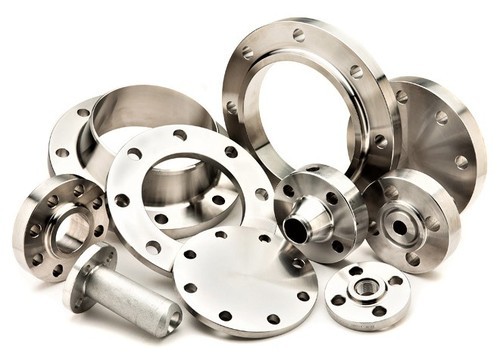SS Circle Manufacturers

"SS Circle Manufacture" refers to the production and fabrication of stainless steel circles, which are widely used in various industries for their durability, corrosion resistance, and aesthetic appeal. Stainless steel circles are essentially flat, circular pieces of stainless steel that can be manufactured in various diameters, thicknesses, and grades, depending on their intended use. These circles are crucial components in a variety of applications, including kitchenware, automotive components, industrial equipment, and architectural elements.
Types of Stainless Steel Circles
Stainless steel circles are manufactured in different grades to suit various requirements. The most commonly used grades include:
-
304 Stainless Steel Circles: This is the most versatile and widely used grade of stainless steel, known for its excellent corrosion resistance, formability, and weldability. It is commonly used in kitchenware, food processing equipment, and chemical containers.
-
316 Stainless Steel Circles: Known for its superior corrosion resistance, especially against chlorides and other industrial solvents, 316-grade stainless steel is used in marine applications, chemical processing equipment, and medical devices.
-
430 Stainless Steel Circles: This is a ferritic, non-hardenable stainless steel with good corrosion resistance and formability, but limited weldability. It is often used in decorative applications, automotive trims, and kitchen appliances.
-
201 Stainless Steel Circles: This grade is a low-cost alternative to the 304 grade and is used in less demanding applications such as kitchen utensils and sinks. It offers lower corrosion resistance compared to 304.
Manufacturing Process
The manufacturing process of stainless steel circles involves several steps, each designed to ensure that the final product meets the required specifications in terms of size, thickness, and quality. The general process includes:
-
Raw Material Selection: High-quality stainless steel sheets or coils are selected based on the required grade. These raw materials are sourced from reputable steel mills to ensure consistency and reliability.
-
Cutting: The selected stainless steel sheets are cut into circular shapes using high-precision cutting machines. This can be done using various methods, including laser cutting, plasma cutting, or mechanical shearing. The choice of cutting method depends on the thickness and grade of the stainless steel.
-
Surface Finishing: After cutting, the stainless steel circles undergo surface finishing processes to achieve the desired texture and appearance. Common finishes include 2B (a smooth, dull finish), BA (bright annealed), and mirror finishes. Surface finishing also helps in removing any burrs or rough edges from the cutting process.
-
Quality Control: The manufactured stainless steel circles are subjected to rigorous quality control checks to ensure they meet the required dimensional tolerances, surface quality, and material properties. This may involve visual inspections, dimensional measurements, and testing for mechanical properties.
-
Packaging: Once the stainless steel circles pass quality control, they are carefully packaged to prevent damage during transportation. Packaging may include wrapping the circles in protective materials and placing them in sturdy containers.
Applications
Stainless steel circles are used in a wide range of applications across various industries:
-
Kitchenware: Stainless steel circles are widely used in the production of kitchen utensils, pots, pans, and other cookware due to their corrosion resistance and ease of cleaning.
-
Automotive Industry: They are used in the manufacture of components such as gaskets, washers, and decorative trim parts.
-
Industrial Equipment: Stainless steel circles are used in the production of flanges, valves, and other equipment used in chemical processing, oil and gas, and food and beverage industries.
-
Architectural Applications: Due to their aesthetic appeal, stainless steel circles are used in decorative elements, signage, and architectural fixtures.
Conclusion
The manufacture of stainless steel circles is a crucial process in the metal fabrication industry, providing essential components for a wide range of applications. With advancements in technology and manufacturing techniques, stainless steel circles continue to play a vital role in modern industrial and commercial products, combining functionality with durability and visual appeal.
